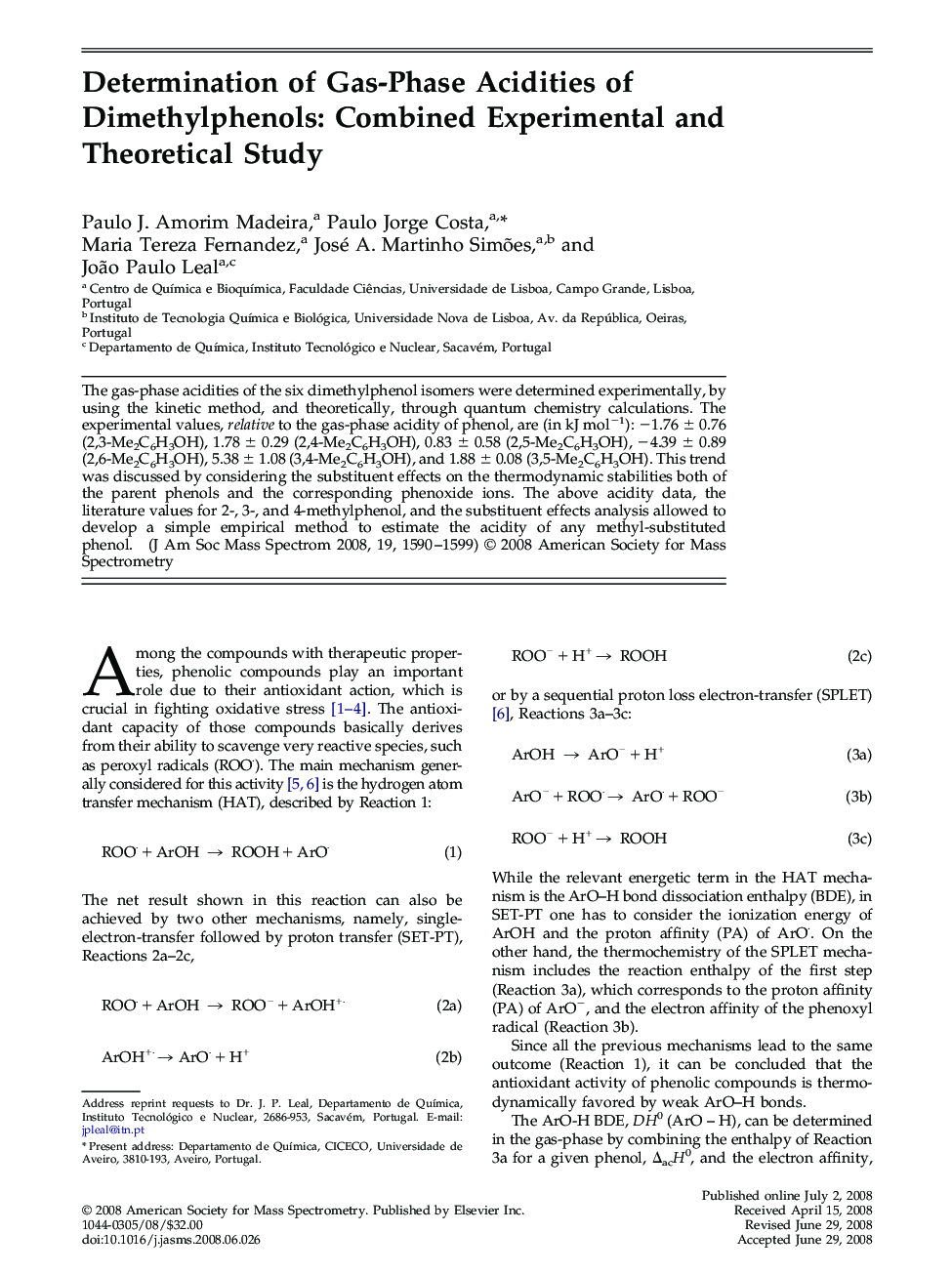| Article ID | Journal | Published Year | Pages | File Type |
|---|---|---|---|---|
| 1195832 | Journal of the American Society for Mass Spectrometry | 2008 | 10 Pages |
The gas-phase acidities of the six dimethylphenol isomers were determined experimentally, by using the kinetic method, and theoretically, through quantum chemistry calculations. The experimental values, relative to the gas-phase acidity of phenol, are (in kJ mol−1): −1.76 ± 0.76 (2,3-Me2C6H3OH), 1.78 ± 0.29 (2,4-Me2C6H3OH), 0.83 ± 0.58 (2,5-Me2C6H3OH), −4.39 ± 0.89 (2,6-Me2C6H3OH), 5.38 ± 1.08 (3,4-Me2C6H3OH), and 1.88 ± 0.08 (3,5-Me2C6H3OH). This trend was discussed by considering the substituent effects on the thermodynamic stabilities both of the parent phenols and the corresponding phenoxide ions. The above acidity data, the literature values for 2-, 3-, and 4-methylphenol, and the substituent effects analysis allowed to develop a simple empirical method to estimate the acidity of any methyl-substituted phenol.
Graphical AbstractGas-phase acidities of the six dimethylphenol isomers were determined by using the kinetic method and quantum chemistry calculations. An empirical method to estimate the acidity of a methylphenol is proposed.Figure optionsDownload full-size imageDownload high-quality image (39 K)Download as PowerPoint slide
